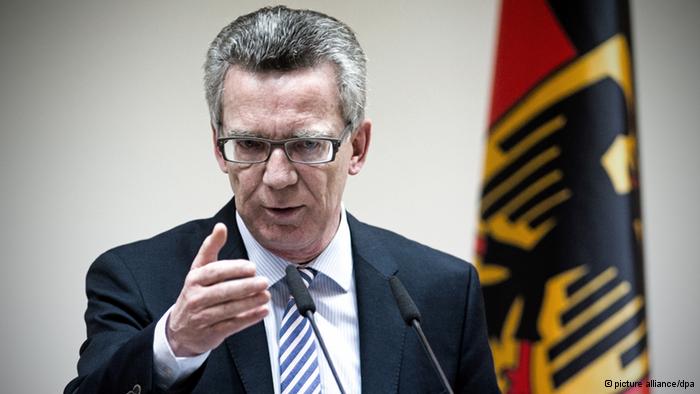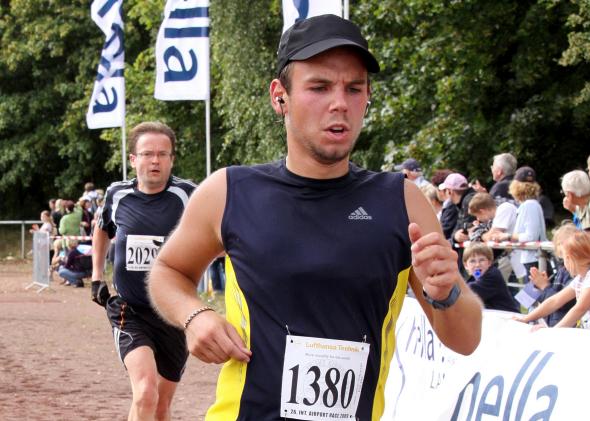The Double Standard Behind The Killer Germanwings Pilot Not Being Called A "Terrorist"
It all comes down to his skin colour and religion among other things.
Andreas Lubitz, the co-pilot on Germanwings Flight 9525, which is believed to have purposefully crashed by him into the French Alps on 24 March, killed himself along with 149 people onboard.
While phrases like "deliberately crashed," and "wanted to destroy the plane," should evoke terrorism, German officials have been quick to deny that Andreas had any sort of link to terrorist activity.
According to statements by German Minister of Interior Thomas de Maizière on 26 March, "this was not a terrorist act", saying he found "no indications of any kind of terrorist background" to the crash.
As Quartz reporter Annalisa Merelli analyses in her report, it's surprising that the terrorist motive was excluded so quickly, especially when in the event of such tragedies the official approach is always not to exclude any possibility.
But then again, this tragedy appeared to lack what, since 9/11, has emerged to be considered the 'conditio sine qua non' (essential element or condition) of terroristic attacks: the pilot was not Muslim.
"Andreas was not Muslim, how could he possibly be a terrorist?"
Co-pilot of Germanwings flight 4U9525 Andreas Lubitz participates in the Airport Hamburg 10-mile race on 13 September 2009 in Hamburg, Germany.
Image via SlateWhile it's being reported that Andreas was suffering from depression and reportedly hid his mental illness from his employer, Germanwings and its parent company, Lufthansa; according to his alleged ex-girlfriend, he had previously vowed to "do something" after which "everyone will know" his name.
This new information, if true, could change the entire western media narrative, which has downplayed terroristic motive on Andreas part.
Investigators take boxes from the apartment of co-pilot Andreas Lubitz.
Image via AP Photo/Martin MeissnerAs Mohamad Najem, a Lebanese Muslim, wearing a traditional Arab headdress in his profile picture, commented on a Facebook story about Andreas, "I can't imagine what would happen if he shared my name!" Indeed, can you imagine? As Annalisa further analyses:
If a Muslim—or an Arab—were flying the plane, this would be a terroristic attack, until there were proof to the contrary (and even then, Muslims would probably be held responsible).
Authorities would call it a "suspected" attack, but certainly the narrative in the less scrupulous media would be terrorism, jihad, fight against the West.
The ancestors of the pilot would be identified, the members of his family or friends with extreme ideologies would be scrutinized in search of a confirmation of fundamentalist influences and motives.
And no one is asking all Germans or the pilots to stand up and condemn the act of this one individual pilot. While they do condemn it, how come we don't need them to say it out loud though; unlike in the event of any such attack involving Muslim extremists, fellow Muslims are asked to do so?
Because double standard. As this eloquent argument sums it up:
Looking at the comments on the Germanwings plane crash by readers of a French online newspaper, I am impressed by the capacity of people to try and understand what could have possibly made the German pilot kill himself and 150 people along with him. I almost found empathy in the comments ("depression is a serious disease", "people suffering from a mental illness are not responsible for their own actions", etc).
Now I wonder why the same French readers of that journal did not try to understand what happened in the head of Charlie Hebdo attackers. I guess that required too much introspection and questioning about the highly exclusive society in which those individuals totally lost it (terrorism can also be considered a form of madness, after all): they were born and brought up in the French banlieue (ghettoised and impoverished Parisian suburbs), they faced discrimination, went to the French "republican" school that failed to transmit "republican values", went to French jails where the conditions are so horrible that people get out of them more radicalized and even bigger criminals...
Explaining all this doesn't mean justifying their actions. Similarly, explaining the German pilot's mental condition doesn't mean excusing him for killing 150 people. What is interesting is that in one case, people are ready to listen to explanations, to even feel sorry for the pilot ("he was heartbroken"), and in the other case humanity is denied to the killers ("they are monsters", period).
I have observed this in India as well in the case of rapists. Demanding death penalty for rapists (especially for poor slum dwellers, never for upper class rapists or army officers) is a way to avoid introspection on one's own society, where "women who go out with their boyfriends at night should be punished" (as both the Delhi medical student's rapist and his lawyers said).
It is easier to dismiss rapists as "monsters" than to fight patriarchy. Similarly, it is easier to deny humanity to terrorists than to fight the causes that lead to terrorism. And the double standard in the way we look at rapists and killers is blatant: it all depends on their skin colour, religious and class background.
The above argument was first posted on Facebook by Dalel Benbabaali, and has been used here after the author's permission!
While the argument is not an attempt to colour the Germanwings crash as an act of terrorism, as Annalisa, the Quartz reporter sums up, it's undeniable that the speed at which authorities and people have come out to rule out a terrorist act in this case highlights the strong Islamophobic bias that grips the Western world.


